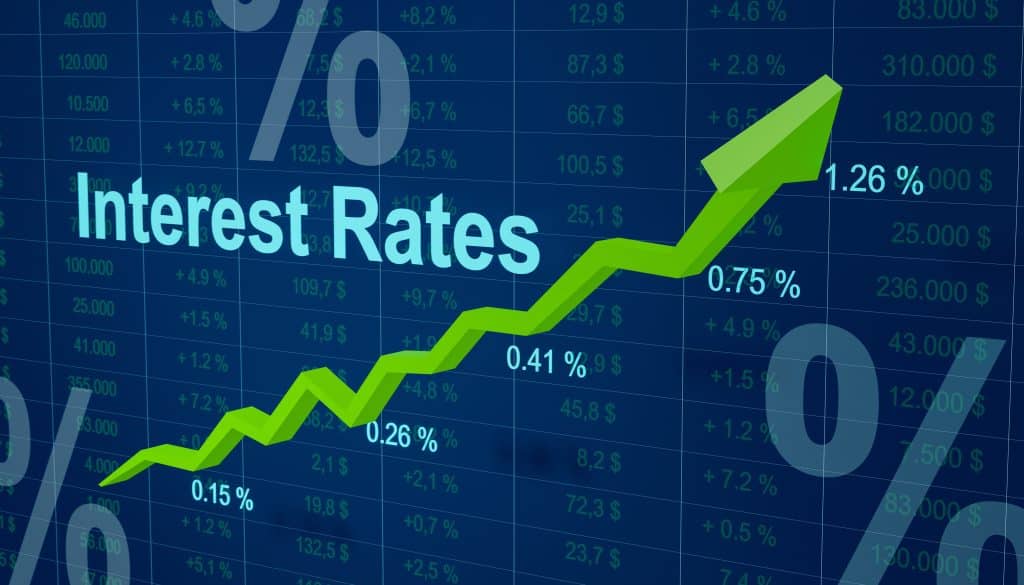As the Bank of Canada today announces yet another rise interest rates, countless Canadians find themselves treading the fine line between optimism and trepidation. An interest rate hike by the Bank of Canada invariably has far-reaching implications, not the least of which will be felt by individuals with personal debt and mortgages.
Today, July 12, the bank announced the key lending rate is now currently 5.00%, marking the 10th hike since March 2022.
The key to understanding the potential impacts of this monetary policy move lies in its primary objective: to control inflation. A raise in interest rates often signifies an economy on the rebound. It means the Bank of Canada is confident enough about the state of our economy to tighten the money supply, to prevent the economy from overheating and keep inflation in check.
At face value, this may appear as good news. A robust economy typically leads to better job prospects, higher wages, and increased consumer confidence. However, for those servicing debts and mortgages, an interest rate hike might not be met with such enthusiasm.
The pinch will not stop at mortgages alone. Interest on personal debt such as credit cards, lines of credit, and student loans may also rise, depending on the specifics of the debt agreement. This will increase the monthly debt service burden for many households, potentially straining budgets and curtailing discretionary spending.
To those on the brink of home ownership, the rate hike might feel like a blow. Higher mortgage rates mean that the cost of borrowing to buy a home will increase, possibly pricing some out of the market. On the other hand, this might lead to cooling off in the red-hot housing market, a development that could be welcome news to those struggling with skyrocketing real estate prices.
On a more optimistic note, savers will stand to gain. Higher interest rates mean better returns on savings accounts and fixed-income investments. For those Canadians who’ve been diligent about saving, this is a deserved reward.
Therefore, a critical takeaway from this discourse is the importance of debt management in a higher interest rate environment. Canadians should consider strategies to manage their debt more effectively. This may include consolidating high-interest debt into lower-rate options, making additional payments to reduce the principal faster, or seeking professional financial advice.
Today, July 12, the bank announced the key lending rate is now currently 5.00%, marking the 10th hike since March 2022.
The key to understanding the potential impacts of this monetary policy move lies in its primary objective: to control inflation. A raise in interest rates often signifies an economy on the rebound. It means the Bank of Canada is confident enough about the state of our economy to tighten the money supply, to prevent the economy from overheating and keep inflation in check.
At face value, this may appear as good news. A robust economy typically leads to better job prospects, higher wages, and increased consumer confidence. However, for those servicing debts and mortgages, an interest rate hike might not be met with such enthusiasm.
Home Owners
To begin with, Canadians with variable-rate mortgages will see their interest payments rise almost immediately. Fixed-rate mortgage holders, on the other hand, will be protected until the end of their fixed-rate term. After that, they too could face higher interest costs if rates remain elevated.The pinch will not stop at mortgages alone. Interest on personal debt such as credit cards, lines of credit, and student loans may also rise, depending on the specifics of the debt agreement. This will increase the monthly debt service burden for many households, potentially straining budgets and curtailing discretionary spending.
To those on the brink of home ownership, the rate hike might feel like a blow. Higher mortgage rates mean that the cost of borrowing to buy a home will increase, possibly pricing some out of the market. On the other hand, this might lead to cooling off in the red-hot housing market, a development that could be welcome news to those struggling with skyrocketing real estate prices.
On a more optimistic note, savers will stand to gain. Higher interest rates mean better returns on savings accounts and fixed-income investments. For those Canadians who’ve been diligent about saving, this is a deserved reward.
Impact On Debts
Yet, let us not forget the millions of Canadians grappling with personal debt. For them, the scenario could become more challenging. Higher interest rates might exacerbate the existing debt problem by increasing the cost of borrowing and making repayments more difficult. This could potentially lead to an increase in default rates, and, in a worst-case scenario, a debt crisis.Therefore, a critical takeaway from this discourse is the importance of debt management in a higher interest rate environment. Canadians should consider strategies to manage their debt more effectively. This may include consolidating high-interest debt into lower-rate options, making additional payments to reduce the principal faster, or seeking professional financial advice.

